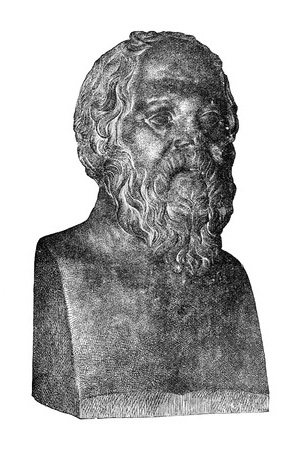The words ‘know thyself’ – or ‘gnothi seauton’ in the original Ancient Greek – were found inscribed in the forecourt of the Temple of Apollo at Delphi. In Latin, the aphorism is spoken as ‘nosce te ipsum’ or ‘temet nosce’ and it has been appropriated by many great thinkers throughout history – including Plato, Aeschylus and contemporaries of Socrates.
And the term is still just as relevant today as it ever has been. Let’s take a look at this simple maxim and uncover just why it is so crucial that we know ourselvesss…
Self-Growth

One obvious interpretation of this aphorism is that one should have good self-knowledge and that this is fundamental to self-growth.
And it’s very easy to see why this might be the case. Self-growth and personal development are both reliant on a person being able to see their own limitations and weaknesses, in order to grow and develop as human beings.
For instance, if you have a very short temper but you believe yourself to be calm and measured, then you will not see any reason to improve this quality and you will continue to be bad tempered. The same thing goes for any other trait or skill. Many rehab centers state that the first step toward recovery is admitting/recognizing the problem.
But if goes deeper than this too. Truly knowing yourself means being able to understand how you behave in numerous different circumstances, being able to predict your own behavior and being able to honestly appraise your own character and skills in detail.
Making the Right Choices
It’s also important to know oneself when it comes to making choices and decisions. For instance, you need to know how skilled you are at a given activity in order to know whether you should enter competitions revolving around that activity. You need to know how attractive and desirable you are in order to know who to approach in a bar and how to go about it.
An army general needs to know their own strengths and weaknesses, such that they can create the best strategy. If you are short on infantry for instance, then you might make up for this by choosing to battle in a narrow corridor.
This is a concept that Sun Tzu preached, too:
“If you know the enemy and know yourself, you need not fear the result of a hundred battles. If you know yourself but not the enemy, for every victory gained you will also suffer a defeat. If you know neither the enemy nor yourself, you will succumb in every battle.”
All Knowledge Is Self-Knowledge
Bruce Lee is a somewhat ‘underappreciated’ philosopher in that most people recognize him for his films and his martial arts prowess rather than for his many writings on the human condition.
But Bruce was a very insightful philosopher and one of his most famous quotes states that ‘all knowledge is self-knowledge’.
What does he possibly mean by this? Simple: that all knowledge expands your own abilities and all knowledge can ultimately be linked back to yourself. When you learn the laws of physics, you actually learn how you move through the world and how you can manipulate objects. When you learn about history, you learn more about the world you live in and the role you can play in it.
And Bruce Lee may have been more right than even he realised. According to the theory of ‘embodied cognition’, the only way we can understand anything is by visualizing how it would affect us physically. If someone tells you about the time they were trekking through the snow, you interpret this by picturing yourself trekking the snow and even feeling the cold wind on your neck. In a brain scan, areas of your brain would light up as though you were trekking through the snow yourself. It’s your personal experience and self-knowledge then that actually allows you to understand any concept. But we’re getting quite abstract now…
How to Learn More About Yourself
Let’s just stick with the fact that knowing yourself helps you to better navigate the world and make full use of your own capabilities then. In which case, how can we expand our self-knowledge when we’re lacking in this capacity?
One tip is to learn more about psychology and biology. While we’re all different, we all also follow the basic same rules for the most part. Your mood will go up when you eat and produce more serotonin and it will go down when you’re hungry and you have low blood sugar. Illness causes you to produce pro-inflammatory cytokines, which make you groggy and give you brain fog.
Knowing this and understanding it is crucial because it will enable you to better understand your own behavior. You might pause before shouting at your other half and wonder if perhaps you’re just being negative because of your low blood sugar – or if perhaps it’s just stress that has shortened your temper. After a good night’s sleep, the world will seem like a better place!
Another important tip is to challenge yourself regularly. It is by challenging yourself that you will be able to expose your own weaknesses and identify areas for improvement.
Another tip is to perform diagnostic ‘de-briefs’ by looking at your own behavior and assessing errors you might have made, flaws in your thinking or things you did well. By having a psychological ‘black box’ ready, you can better avoid repeating the same mistakes over and over, while gradually making improvements in your performance.
Finally, listen to the criticisms of others. Don’t treat them as gospel, as they can be fallible too – but if you keep receiving the same feedback from people, then perhaps it is something worth listening to!



